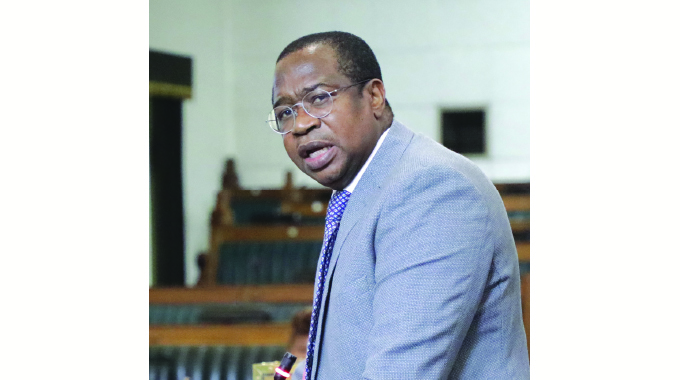Tax-free income threshold now $91 700 per month

Farirai Machivenyika and Blessings Chidakwa
The tax-free band for personal income tax has been raised 22 percent to $1,1 million a year, or $91 700 a month, from the existing $900 000 a year or $75 000 a month that came through in the mid-year mini budget, after the National Assembly persuaded Finance and Economic Development Minister Mthuli Ncube to amend his Budget for next year.
The National Assembly, which usually sits between Tuesday and Thursday, decided to extend this week’s sittings to a Friday to debate the Budget, with the revenue proposals topping the agenda.
Legislators from both sides of the National Assembly thought the lack of a further widening of the tax-free band for personal income tax after the dramatic widening in the mid-year mini-budget should be changed.
Contributing to the debate, Cde Joseph Chinotimba said it was important to raise the tax-free threshold to cushion workers against rising prices.
“The majority of workers are earning little and one of the ways to give them more is to raise the tax-free threshold. Even during the debate on the Supplementary Budget, we had proposed the figure to be $1,5 million but we compromised on $900 000 with the Minister on the understanding that he would review it to $1,2 million during the 2023 Budget so we want the Minister to at least honour his pledge,” he said.
The minister eventually acceded to the legislators pressure and offered to raise the tax-free threshold by 22,2 percent to $1,1 million a year, which the National Assembly accepted.
Zimbabwe Confederation of Public Sector Trade Unions (ZCPSTU) spokesperson Mr David Dzatsunga said the move would work in favour of workers.
“It means more money will be coming into our pockets as disposable income. We are also glad that it is coming at a time workers are receiving bonuses,” he said.
Zimbabwe Nurses Association President Mr Enock Dongo commended the Government for the move, saying it will go a long way in stabilising the economy and improving welfare of civil servants.
“A very commendable and good move to increase the tax-free threshold. Definitely it means whatever that Government puts in place as long as it will put an extra dollar in the pockets of a worker, it is commendable. That is exactly what we expect.
“Whenever policies are being put in place, they should think of workers. For the Government to achieve the President mantra of achieving a middle income by 2030 workers are the key to that achievement. We want to improve the income of the Government while mindful of people making that vision realized,” he said.
Mr Dongo however, urged Prof Ncube to increase the threshold to at least around $150 000 to $200 000 a month.
Confederation of Zimbabwe Retailers (CZR) president, Mr Denford Mutashu, hailed the move, since his members were likely to see most of the extra cash when it was spent.
“It is a welcome development as it will spur effective demand that had been subdued over the longer course of the year,” he said.
Zimbabwe Congress of Trade Unions president Ms Florence Taruvinga said she needed to consult members.
“I need to go through what has been agreed on but our position has always been that the tax free threshold should be linked to the poverty datum line,” she said. The ZCTU wants income under the poverty datum line not to be taxed. At present the poverty datum line for a single person was around $27 000 in September and inflation has been very low since then.
Since taking office, the Second Republic has been firm on the point that spending must be matched by revenue, with only minute borrowings permitted on the capital budget for things that produce immediate revenue to pay off the loan. This means that almost all Government expenditure is covered by tax collections, hence the detailed discussion that ensues whenever taxes are brought up.







Comments